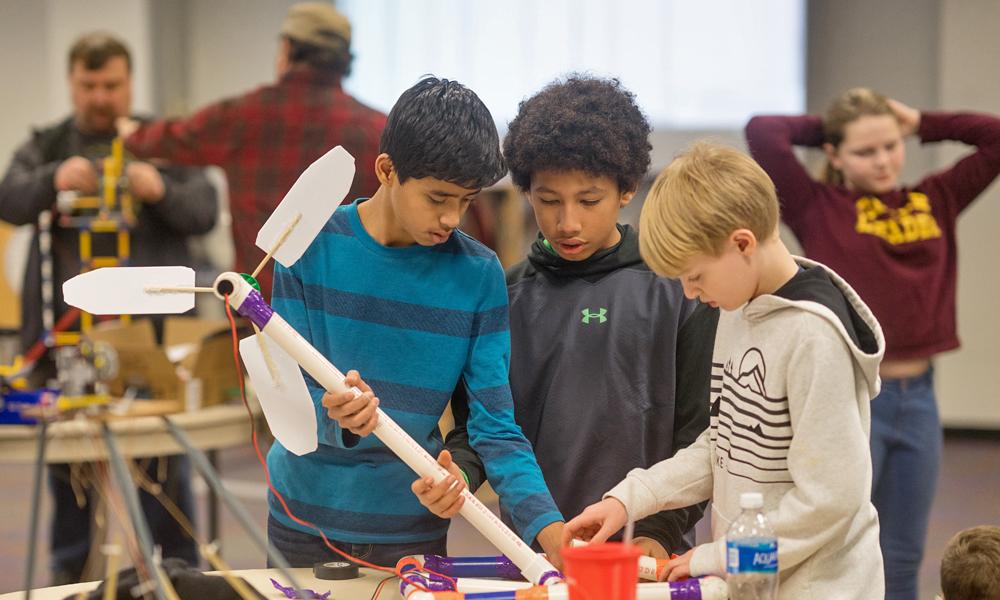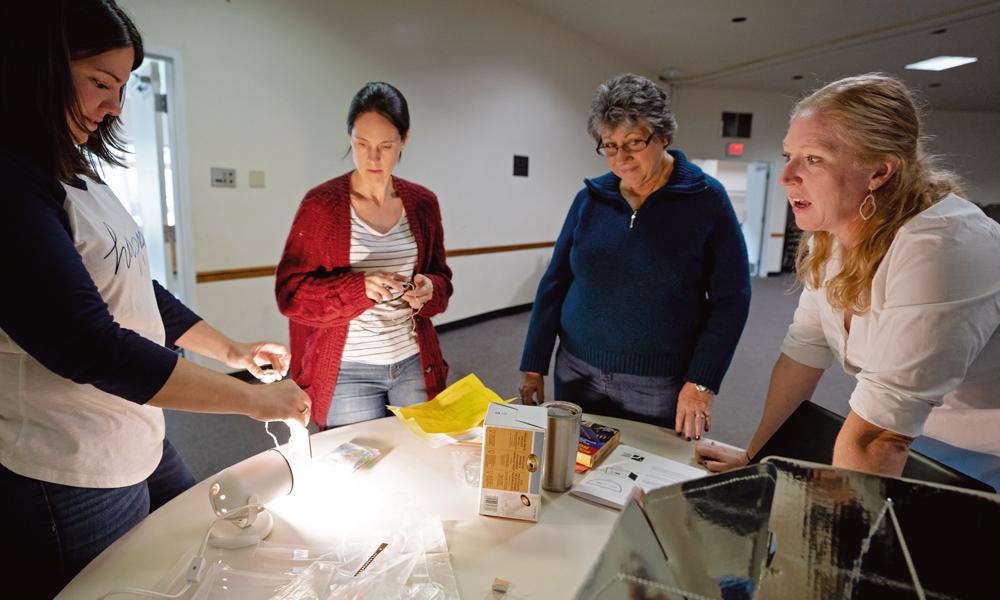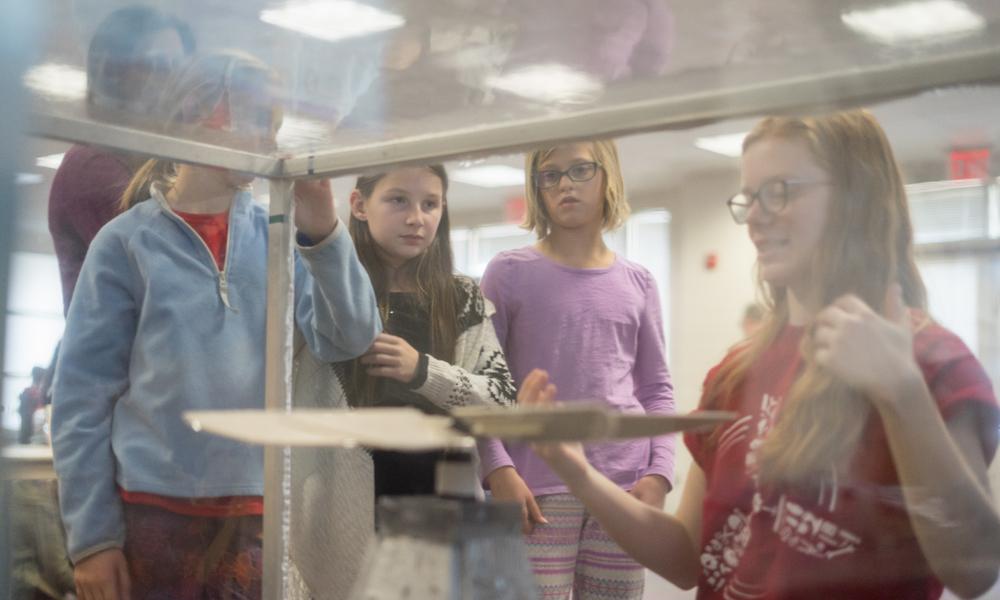The future of wind and solar
JMU center powers K-12 sustainable energy education across Virginia
Education
SUMMARY: Remy Pangle (’99) came back to JMU in 2007 for a job with the Center for the Advancement of Sustainable Energy, that now has her promoting wind and solar energy education to K-12 teachers across Virginia.
By Eric Gorton (’86, ’09M)
Growing up on the coast of Massachusetts, Remy Pangle (’99) set her sights on becoming an oceanographer.
After graduating from JMU with a degree in integrated science and technology, she headed to the University of Maine for a master’s degree and began her career in oceanography.
A phone call with Jonathan Miles, executive director of the JMU Center for the Advancement of Sustainable Energy, led Pangle back to JMU and to a job that now has her promoting wind and solar energy education to K-12 teachers across Virginia.

|
“My path from oceanography to renewable energy actually made a lot of sense,” Pangle said. “I was doing a lot of work just when GIS was coming into the mainstream, doing a lot of spatial analysis. I talked to Jon and he told me he needed a marine scientist to help understand the offshore realm for putting up wind turbines. It just fascinated me.”
It didn’t hurt that the position, which she took in 2007, offered a way to do something to mitigate climate change rather than just observe what it was doing to the oceans.
“Growing up on the coast, I think, piqued my interest in the environment,” she said. “I guess I’ve always just cared about the world.”
As director and education manager of CASE, which serves as the U.S. Department of Energy’s Wind Application Center for Virginia, Pangle gets to share her enthusiasm for the environment and science with teachers and students across the state. JMU is the only university in Virginia providing a wide variety of services under the DOE’s Wind for Schools program.

|
The outreach began in 2010 when the center, then called The Center for Wind Energy, secured its first Wind for Schools grant. Since then, Pangle has been implementing Wind for Schools programs and initiatives, including the annual KidWind Challenge, a competition for elementary-, middle- and high-school students that incorporates engineering, science, alternative energy and sustainability.
The center provides consulting services for schools interested in installing wind turbines and solar panels. So far, eight schools have installed wind turbines through the Wind for Schools program, with assistance from CASE. The center also runs a solar panel loan program for schools interested in small demonstration projects. For larger projects, CASE helps connect the schools with installers.
Pangle’s latest project, the result of a budding partnership with Virginia Cooperative Extension, involves supplying educational kits for teaching about solar and wind power to the state’s six 4-H educational centers. The 4-H centers teach the material to children who visit them and loan the kits to schools in their regions.
With help from her interns, Pangle customizes the kits so they’re available for different age groups, from elementary through high school, and easy for teachers to use. She also trains the 4-H staff and teachers how to use the materials, which were developed by the National Energy Education Development Project. Purchased with grant money from the U.S. Department of Energy, the NEED kits contain hands-on activities accompanied by books and curriculum materials that align with Virginia’s Standards of Learning. Before the VCE partnership, Pangle placed the kits at museums around the state, but the 4-H Centers are better staffed for working with students and teachers, she said.
The kits come with six activities in each box. “It’s basically everything you need to do a module on wind energy or solar energy for 25 kids,” Pangle said. However, because the kits can be daunting to teachers who want to teach specific lessons to specific age groups, Pangle developed a method for breaking them down into more manageable lessons. “The Wonders of the Wind kit is now Wind Does Work, Wind Makes Electricity and Measuring the Wind. There are three individual kits teachers can borrow that cover three main concepts,” Pangle said.
Tammy Stone, science coordinator for Rockingham County Public Schools, said the CASE program for loaning the teaching kits removed a barrier for teachers who don’t have the supplies, and Pangle’s efforts to connect JMU students with RCPS students “is a win-win for both the college students and our students.”
Stone lauds the work Pangle has done. "Remy is an outstanding outreach ambassador for JMU,” she said.
Pangle said she enjoys training educators to teach the material and seeing students solving problems. And while training the future sustainable energy workforce is a goal of Wind for Schools, Pangle said even students who don’t follow a path to the energy sector receive a real benefit.
“If we can get kids excited now about the important issues, teaching them about renewable energy as an option, as a solution, and tying it to climate change, when they’re ready to vote, they’re going to be well-informed on energy issues and able to make good decisions,” she said.

